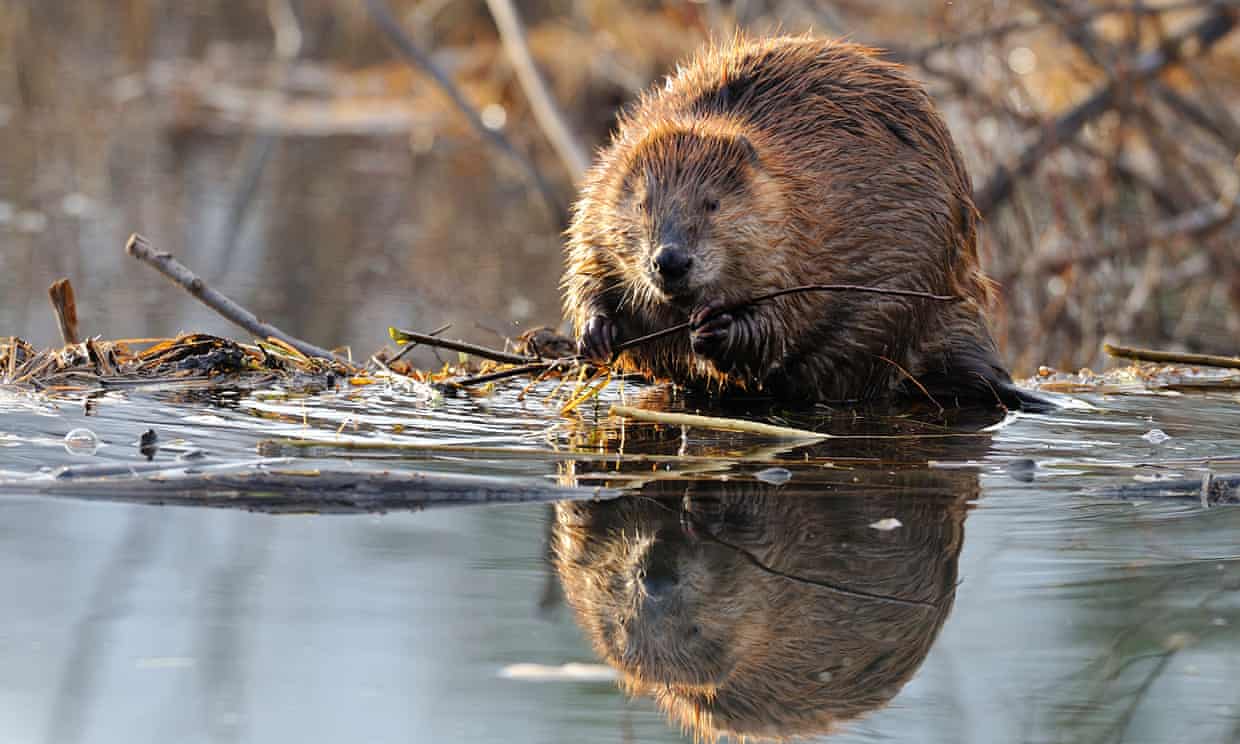Sometimes the messages that get the most listened to are the ones that come from people you don’t expect to send them. I mean if you read a column by me saying we should save beavers you’d think nothing of it and just toss on the pile of the nine million other articles I’ve written about the exact same thing. But if one day, quite unexpected, you opened the webpage and read my writing that beavers should be eliminated from streams because the cause cholera, you take notice. And actually stop and think, whoa maybe that’s true.
It’s not though. Beavers don’t cause cholera and I’ll never ever write that, but you get the point of the analogy right?
Mr. Cohen is is a columnist and political commentator for the Spectator and Observer. He’s one of those who supported the Iraq war and opposed Scottish independence. So it was pleasing to read this headline.
I’m sorry if rewilding hurts farmers, but we need it
Apart from crags and pockets of ancient woodland, the British uplands are manmade. Three thousand years before Christ, neolithic farmers felled the trees and gave us a landscape stripped to grassland by grazing sheep we take as “natural” today. Two thousand years after Christ, new forces are moulding the British uplands. They will bring back at least a part of what stone age men destroyed.
It’s hard to believe in an unequal country, where wealth and land are so unevenly distributed, but the ecology of the hills depends on popular approval. When public opinion moves, the hills move with it. However solid their drystone walls are, they will not be strong enough to hold back political change, climate change and changes in fashion, which affect the countryside as surely as they affect clothes and music.
Before the Romantic movement, most saw the Highlands as wastelands. Our love for them is a result of the romantic reaction against the Industrial Revolution, which in turn produced its own revolution in sensibility. Another revolution is upon us. It is easy to mock the rewilding movement just as it was easy to mock the Romantics. But I would keep the “Disneyland” jeers to a minimum if I wanted to get a hearing.

Rewilding the fells is not just townies forcing their naive fantasies on the countryside. It is a hard-headed policy: in a tiny way, it will help offset global warming; more tangibly, it will slow the floodwaters climate change is bringing. It will also be popular. If you doubt me, look at how many go to see the new beaver colonies in Scotland or the wetlands in East Anglia and Somerset. Or listen to the sympathetic hearings plans to reintroduce lynx to the Kielder Forest receive. Look even at the seeds on sale in supermarkets and notice how popular the wildflowers we once dismissed as weeds have become.
“Taxpayers should only pay public subsidy to farmers in return for things that the market won’t pay for, but are valued and needed by the public,” said the National Trust’s director general, Helen Ghosh, after the Brexit vote. Her shopping list included wildflowers, bees and butterflies, farmland birds, water meadows and meandering rivers, which themselves slow flood water.
You can mock her if you want, but your mockery won’t stop her. Romanticism was a reaction against industrialisation and rewilding is a reaction against global warming and the mass extinction of species. It is likely to be as uncontainable.
The notion that rewilding is a response to Global Warming and species extinction appeals to me. That it is rooted in the romanticism’s rejection of the industrial revolution gives it a prominence and a place in history. That our taxes should subsidize things that matter, and that wildflowers and beavers matter, that REALLY appeals to me.
That being said, I’m not convinced that increasing watershed or land complexity is bad for farmers. It’s good for water quality and it’s good for bees both things their work requires. Making the countryside into a quilt of matching patchworks reduces its ability to survive all the increasingly horrific things that mother nature will be throwing our way. Better to diversify our landscape portfolio and let diversity itself be our seatbelt for the bumpy ride ahead. I am reminded of Brock Dolman’s discussion of the watershed as the ‘Lifeboat’.

I’m not sure what will happen with the save-the-farmers movement in the UK but I can’t see they’re helping their case much meanwhile by resisting and shooting beavers.
But maybe that’s just me.






































